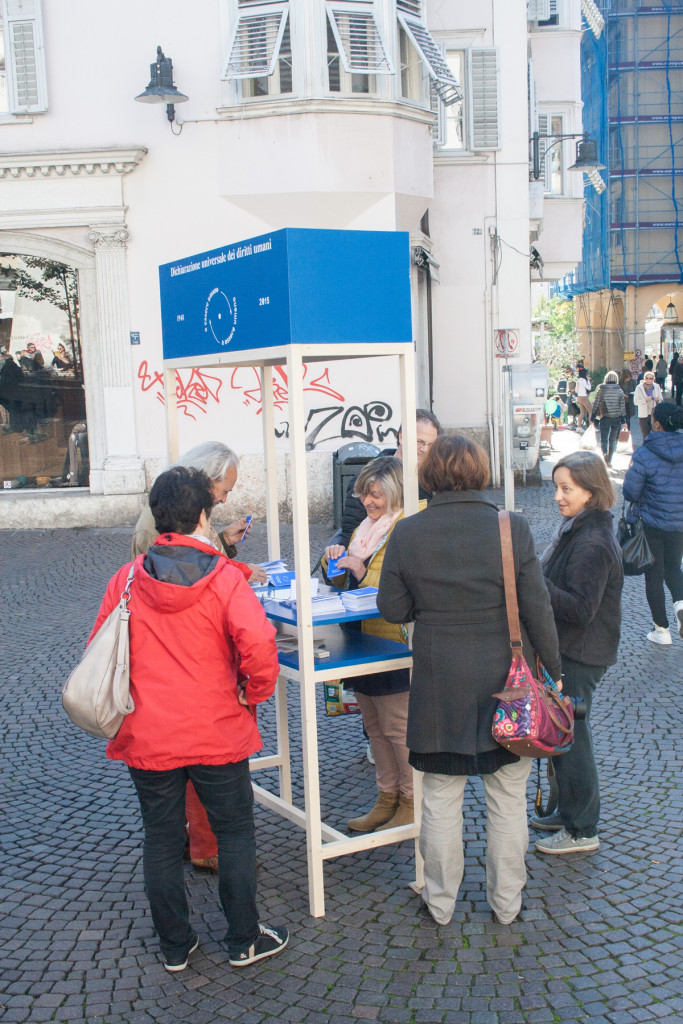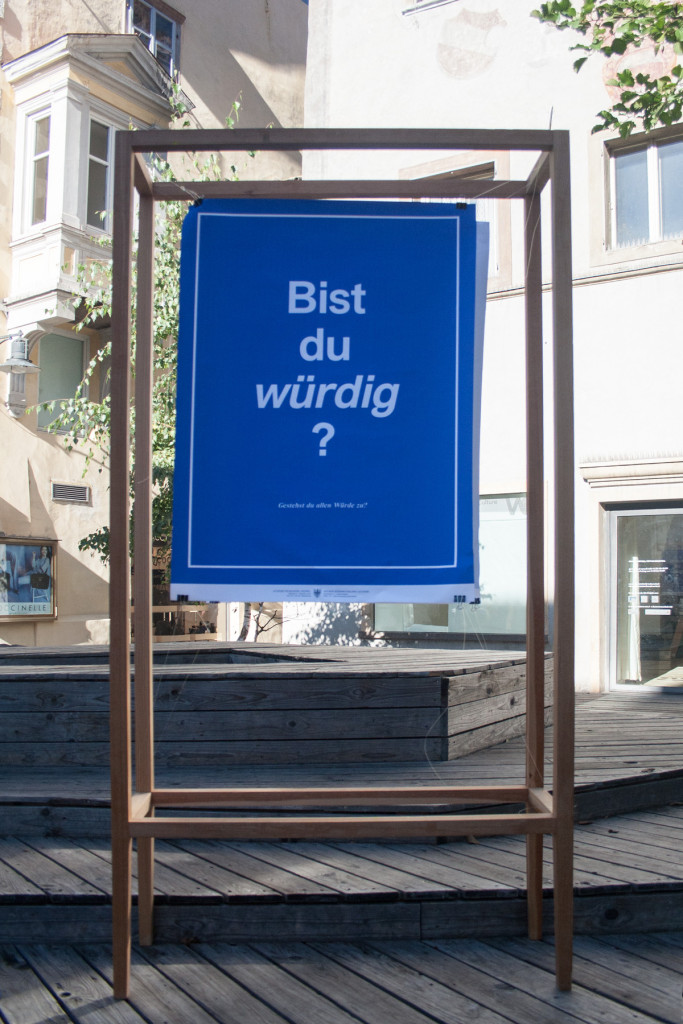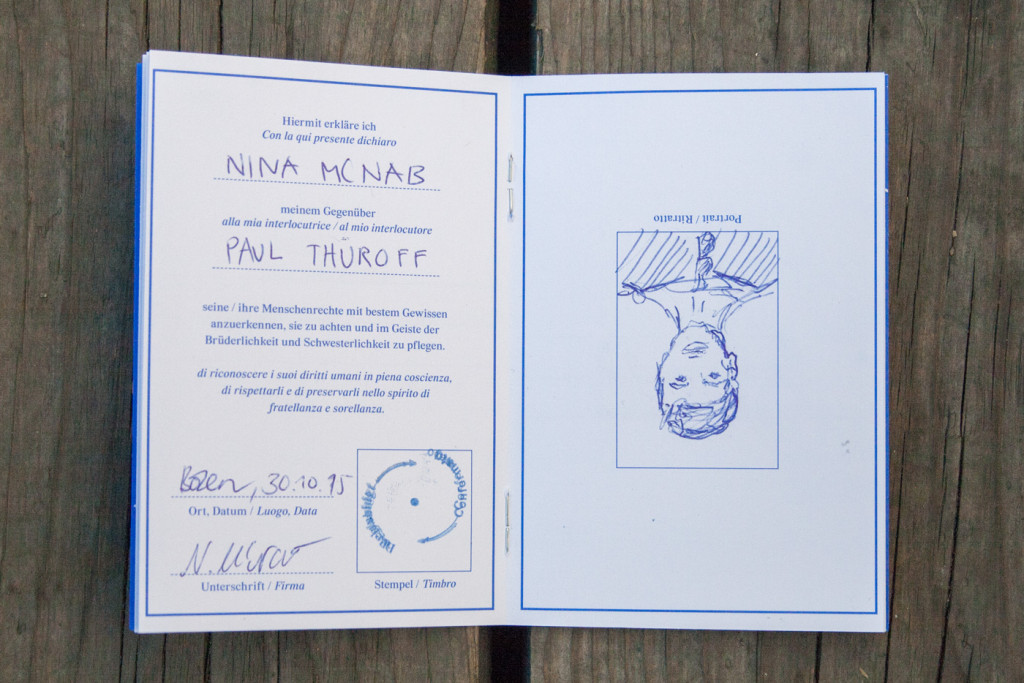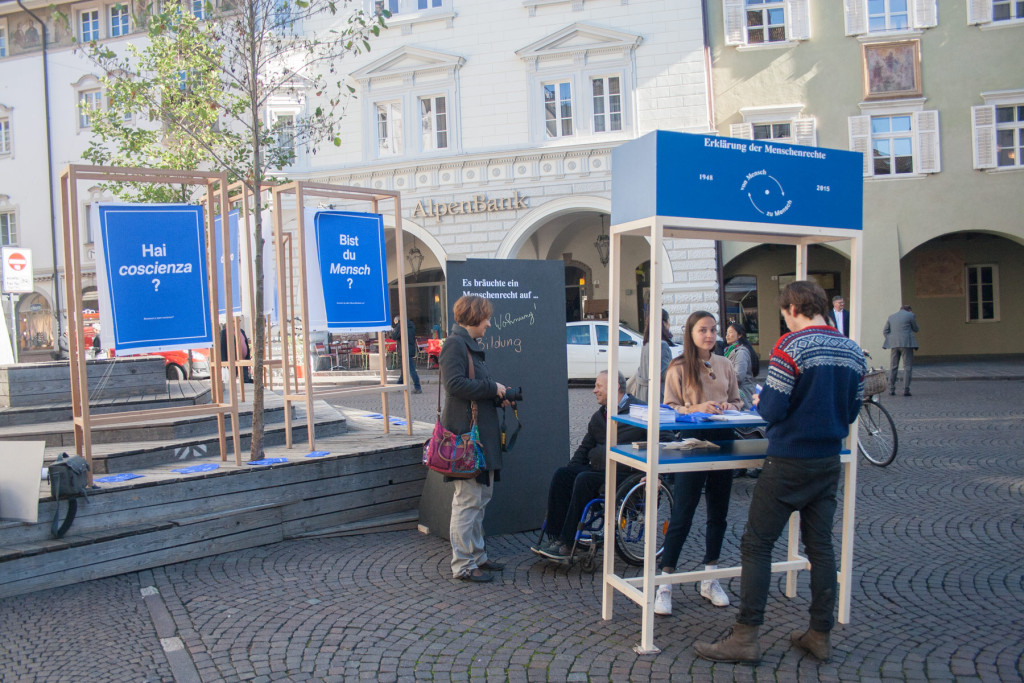Declaration of Universal Rights, From Human – to Human
Declaration of Universal Human Rights, From Human – to Human is the translated title of the public intervention that took part in different places within the bilingual city of Bolzano in South Tyrol, North Italy.
The public intervention was commissioned by and designed in collaboration with two employees of the Public office for permanent education of the city Bolzano.
The intervention’s main goal is to make people engage with each other so that they would declare each other the Universal Rights through a passport for which they had to portrait the other (unknown) person, sign, and stamp the document like during an official declaration.
Thereby we wanted to make people more aware of the already existing Universal Rights declared in 1948. Furthermore we targeted the individuals as responsible actors to question the current situation and conditions regarding the implementation of human rights. (e.g. within the refugee discourse and the connected issue of equality)
In addition the commissioning public servants had to change their usual roles they embody while working for the city-office. They no longer acted in a mode of ‘state employee ↔ citizen’ but became rather moderators/agents that try to make single individuals engage with each other on the streets. (‘citizen ↔ citizen’)
Besides that, people could invent and dream about new universal rights that they would like to see implemented and write them down on a huge black board – the “mirror of critique and hopes”.













I would be curious to see/read/hear the kind of reactions and conversations that this triggered. I find it an interesting way of bringing to the surface some important issues closely linked to the Universal Declaration of Human Rights (like citizenship, migration, etc) and making them more tangible; then after making things (in a Latourian sense) public, how can you re-assemble them? Or allow people to do so?
First of all I found it very interesting to see that the proposal for an action of this kind came from two state-employees rather than an “traditional” activist group.
It is to say that the local political structures in South-Tyrol are in general very tradition-bound, rigide and closed – in contrast the intervention was raising very fundamental critical questions.
Therefore I see the two state-employees as intruders or change-makers within the system, and the intervention’s positive feedback gives them now the legitimacy to keep pushing for fundamental self-critical questions within their own institution.
As the intervention was planned upfront only as a set of actions in different places I see it more as a starting point/trigger for a continuing discussion.
But you rightly ask: How to deal with the inputs, or how could we design the circumstances that are needed for a following open and larger debate?
As I said before: Now the two of them created a certain legitimacy for these critical questions within their institution. – This can help especially when it comes to the question of budget and a continuing public funding.
Fascinating and very relevant! While I agree that the language of rights is a crucial one, I wonder if, at least in terms of host countries’ reactions to refugess for example, the language of duties is equally important. Up till now, rights has enshrined the power of the people in the face of larger institutonalised violations. I feel like the discussion as to the ‘rights’ of refugees didn’t carry much water with the public. Questions of moral and human duties did however strum the heart strings and moved people to action. While rights remains an essential political and legal safeguard, for public action on pressing issues, the question of duty appears to be the one that is shifting perception and action. What are your thoughts on this? Do you see room to enlarge the debates from rights to duties?